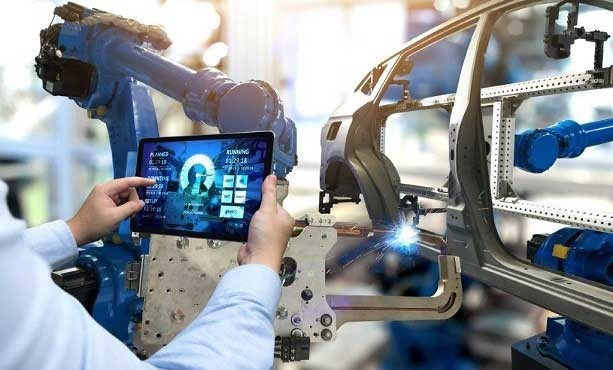
Image credit: Asian Productivity Organisation
PETALING JAYA: The government is urged to increase its funding and incentive support to help manufacturers transform into smart factories as targeted under the New Industrial Master Plan 2030 (NIMP 2030).
Federation of Malaysian Manufacturers (FMM) president Tan Sri Soh Thian Lai estimated that a total of RM5 billion in financial support is needed to fund the transformation at a national scale, compared to about RM3 billion in grants and funding currently available.
This additional support would enable Malaysia to achieve the goals of NIMP 2030 Mission-based Project 21, which aims to create 3,000 smart factories by 2030 via Industry 4.0 and digital technology adoption, he told reporters after the FMM Industry 4.0 Conference 2024 here, today.
The call was also made to help the country improve its global competitiveness ranking, which recently dropped to 34th place.
"There are many factors contributing to the drop. It could be the factories' operations, the performance of the ringgit due to the impact of our supply change, our talent pool, and our bureaucratic process.
"As part of the manufacturing ecosystem, FMM wants to assist the country in improving its rankings," he said.
However, Soh said most Malaysian businesses are small and medium enterprises (SMEs), which require government funding or grants to incorporate new technologies into their manufacturing processes as these upgrades involve a minimum cost of RM500,000.
SMEs are the backbone of the Malaysian economy, comprising more than 97.5 per cent of the nation's businesses. Of these, 87 per cent are micro-SMEs, he noted.
Apart from government funding, he also hoped that banks could lower their interest rates for technology adoption financing to around two per cent to three per cent from an average of seven per cent.
He suggested that the government provide guarantees through the Credit Guarantee Corporation Malaysia Bhd (CGC) to attract banks to offer lower interest rates to companies keen to modernise their manufacturing facilities.
In addition, he also recommended double tax deductions for companies that adopt Industry 4.0 and digitalisation such as artificial intelligence (AI), big data analytics, and autonomous robotic systems, among others.
FMM has also proposed that the government provide an accelerated capital allowance for AI and robotic systems up to a qualifying expenditure of RM5 million for SMEs that undertake manufacturing, chairman of FMM Industry 4.0 and Digital Economy Committee, Jacob Lee said.
For the past three years, he said disruption and economic hardship caused by the pandemic have increased the urgency to accelerate smart manufacturing for competitiveness.
Nevertheless, such transformation requires organisations to invest a significant amount of time and resources to identify key focus areas, select relevant technologies, and engage the right technology providers to oversee the entire implementation of the transformation plan.
To help manufacturers, FMM partnered with 29 companies today to create a robust technology ecosystem aimed at accelerating technology adoption among manufacturers, shifting away from a low-skilled labour model, and nurturing local talents, aligning the government's aims under NIMP 2030.
The enhanced ecosystem in the manufacturing sector would also encourage businesses to utilise and incorporate 5G to improve connectivity and operational efficiency.
"We need the 5G equipment producers to provide connectors, and the government needs to set a price. Right now, the industries do not know what the unit cost is for the 5G usage," Soh added.
Source: https://www.nst.com.my/business/corporate/2024/07/1080916/rm5b-needed-support-smart-manufacturing-goals-under-nimp-2030-fmm

